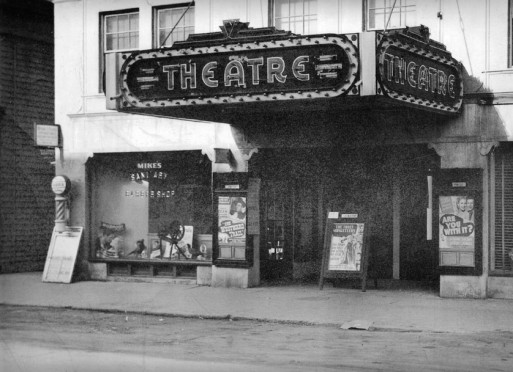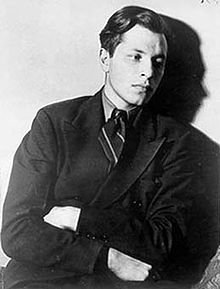
Photo Credit: Crandell Theatre
I was cleaning out my garage the other day, and I found a book of short stories that I had bought for a class in college. I immediately went to the table of contents and searched for a story called “In Dreams Begin Responsibilities,” by Delmore Schwartz; it was one of my favorites. There’s no loss in the story, in the sense of death, but the story is colored by feelings of regret, and a desire to change the past. This, I feel, is a different kind of loss. But either way, there is no turning back time, there is only looking toward the future.
The story begins on uncertain ground. Schwartz states, “I think it is the year 1909. I feel as if I were in a moving-picture theatre, the long arm of light crossing the darkness and spinning, my eyes fixed upon the screen.” This confusion plays an important role in the story, as the reader comes to find out. As time passes, Schwartz becomes sure of what he is seeing. Just a few lines later, he confidently declares: “It is Sunday afternoon, June 12th, 1909, and my father is walking down the quiet streets of Brooklyn on his way to visit my mother.” Schwartz realizes that he is watching his father, in a scene from his father’s past. The “film” in front of Schwartz continues to follow Schwartz’s father and his mother, as they go out on a date.
Schwartz, already acquainted with the his parents’ rocky relationship, notices signs of impending doom even in this flashback, which takes place so many years ago. Watching these tiny signals overwhelms the author: “Suddenly I begin to weep. The determined old lady who sits next to me in the theatre is annoyed…” This is only one of several emotional displays that Schwartz exhibits in the theatre. Later, as his parents (onscreen) stand and calmly watch the ocean, Schwartz narrates his horror: “The old lady next to me pats my shoulder and says, ‘There, there, young man, all of this is only a movie, only a movie,’ but I look up once more at the terrifying sun and the terrifying ocean, and being unable to control my tears I get up and go to the men’s room…” The tragedy of the situation is amplified by the woman telling him that it’s “only a movie”; Schwartz knows this isn’t the case, and it depresses him.

Delmore Schwartz
Even when Schwartz’s father proposes to his mother, there are signs that it isn’t quite right; when Schwartz’s mother begins crying, her now-fiancee “finds all of this very difficult, scarcely to his taste, scarcely as he thought it would be…” This is not exactly the line of thinking that should be crossing the mind of someone that has just proposed to his girlfriend, and Schwartz is appalled: “…I stood up in the theatre and shouted: ‘Don’t do it! It’s not too late to change your minds, both of you. Nothing good will come of it, only remorse, hatred, scandal, and two children whose characters are monstrous.’” Referring to the future split of his parents, Schwartz desperately tries to do anything he can to stop them from making the same mistake twice; but just like life itself, the movie goes on.
Later, in a scene where the couple get angry at each other, Schwartz feels that he can no longer take it. He stands up once more and shouts: “What are they doing? Don’t they know what they are doing?” At this point, an usher comes to escort Schwartz from the theatre, and the employee’s words resonate with the writer:
“What are you doing? Don’t you know you can’t do things like this, you can’t do whatever you want to do, even if other people aren’t about…You can’t carry on like this, it is not right, you will find that out soon enough, everything you do matters too much…”
Just as it is dawning on him that he needs to take responsibility for his actions as much as his parents do, Schwartz realizes that he is waking up from a dream: “…I woke up into the bleak winter morning of my twenty-first birthday, the window-sill shining with its lip of snow, and the morning already begun.” This dream comes on the cusp of a milestone for Schwartz, which makes it all the more significant. There are things about the past we wish we could change, there are memories we wish would disappear; and while we can’t alter the past, we can change our future. Our time is far better spent trying to make a brighter future for ourselves than sitting and regretting what is already done.
*Delmore Schwartz Photo Credit: Wikipedia
Related Reading:
- More on Delmore Schwartz
- “Finding Happiness” (SevenPonds)

 “In Dreams Begin Responsibilities” by Delmore Schwartz
“In Dreams Begin Responsibilities” by Delmore Schwartz


 How Dare You Die Now!
How Dare You Die Now!
 Debating Medical Aid in Dying
Debating Medical Aid in Dying
 “Help Me, Helen”
“Help Me, Helen”














